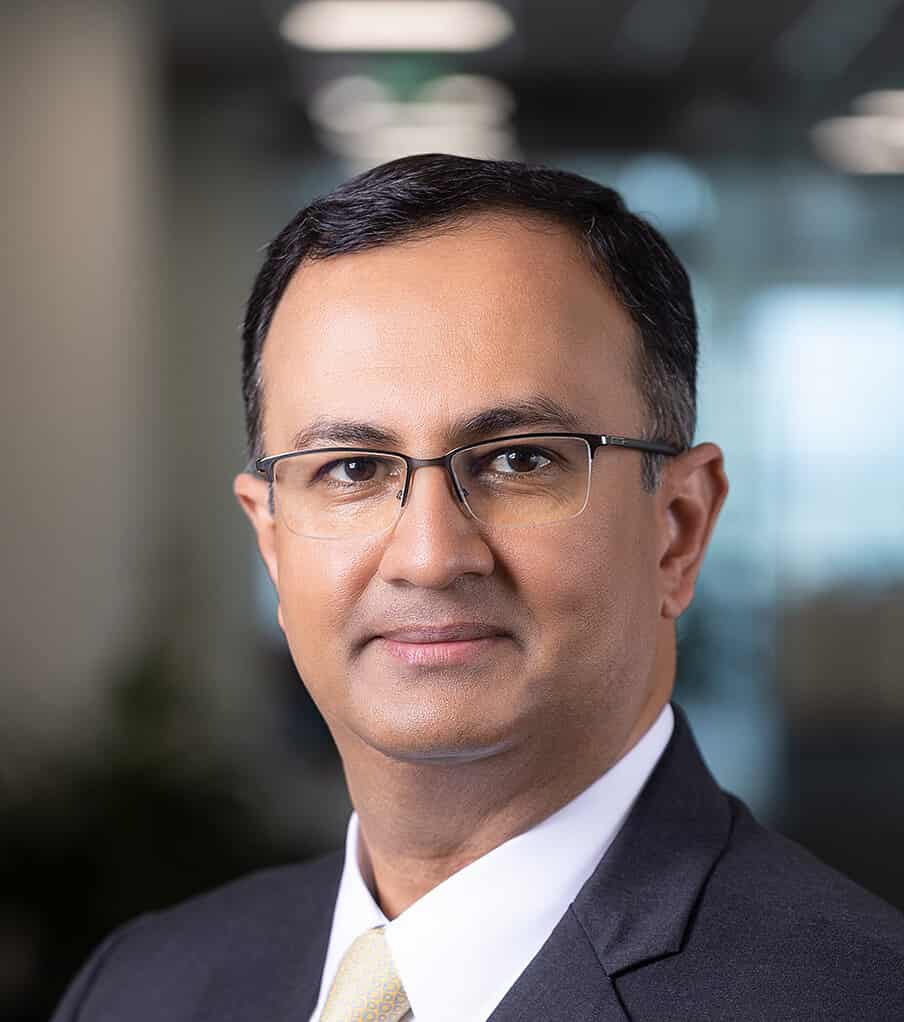Rakbank Group CEO Raheel Ahmed discusses his bank’s focus on service diversification and open banking.
Global Finance: What do you expect for 2024 in the UAE market?
Raheel Ahmed: As of last year’s end, we had doubts about whether the UAE’s post-Covid growth would keep going, especially given the regional tensions and fluctuating US interest rates. But pleasantly, the UAE’s growth has continued. There are several reasons for this. First, they’ve done a brilliant job post-Covid in making it easy to do business and live there. This has made the UAE an appealing place to settle and work, drawing people in like a magnet. It is also seen as a haven for those affected by conflicts in nearby areas. Secondly, the tourism industry is booming, with a record number of visitors in 2023. And finally, the leadership’s smart financial strategies are paying off—they’re reducing reliance on oil revenue while benefiting from high oil prices. All these factors combined suggest that the UAE’s growth is here to stay in the short and long term.
GF: What sectors are you are focused on?
Ahmed: We’re a midsize bank with diverse investment services, catering from microfinance to corporate banking. Our focus sectors include education, spanning from early childhood to university level. We also prioritize hospitality, support SMEs [small and midsize enterprises] with a particular emphasis on empowering female entrepreneurs, engage in government projects, and specialize in trading and manufacturing. Microfinance holds significant importance for us, as it allows us to extend financial inclusion to the 4.5 million blue-collar workers in the UAE. Through our partnership with the French payment system Edenred, we facilitate the seamless processing of payroll, remittance and microlending services.

GF: Is artificial intelligence [AI] already a reality for you?
Ahmed: Machine learning and AI have been part of our toolkit. We leverage these technologies for various purposes, such as propensity modeling, fraud detection and identifying transaction patterns. Additionally, we’ve taken a proactive step by establishing a generative AI lab, positioning ourselves as early adopters in this field. We’ve prioritized tackling easily achievable goals, employing AI to enhance our tech development processes, complementing our coding and testing capabilities, and refining our internal policies.
GF: How is the advent of open banking in the GCC changing how you work?
Ahmed: Open banking is nearing its launch in the UAE, with advanced stages of development expected to culminate within the next 12 to 18 months. We’re closely collaborating with the central bank during consultation phases, followed by implementation, which may span a year or two. Achieving scale is crucial for these technologies, and I believe the UAE will serve as an excellent hub for broader adoption across the GCC and the Indian subcontinent. With a customer-centric approach, open banking holds promising use cases. As we embark on this journey in the UAE, we aim to be prepared to utilize and offer our APIs. Above all, prioritizing data security, privacy and trust is paramount in open finance. It’s imperative to ensure that entities accessing customer data uphold the same high standards of cybersecurity expected from a bank.
GF: How is your bank engaging with climate finance?
Ahmed: Our approach spans various levels, rooted in the belief that the societal impact touches everyone. Rather than merely making flashy announcements, we prioritize action starting from within. Our initial focus is on ingraining deep environmental, social and governance [ESG] goals within our company culture. This includes tangible reductions in water, electricity and paper consumption, aiming to make these initiatives meaningful for every employee.
Moving forward, we extend our efforts to our customers, offering green mortgages and green auto loans and collaborating with larger corporate clients on their transition to sustainable practices. This represents our second tier of engagement. At the highest level, we’re committed to significant climate finance initiatives, exemplified by our involvement in the UN COP28 summit. UAE banks pledged AED1 trillion [$270 billion] by 2030, with our contribution totaling AED8 billion [$2.1 billion]. However, our primary focus remains on making these commitments tangible and impactful for everyone involved daily.
For us, ESG encompasses not only environmental concerns but also social responsibility. To this end, we’ve developed the region’s first social finance framework and are set to launch a social finance bond. This initiative is particularly significant, as we are the largest financing provider to micro-SMEs and new startups in the country.



